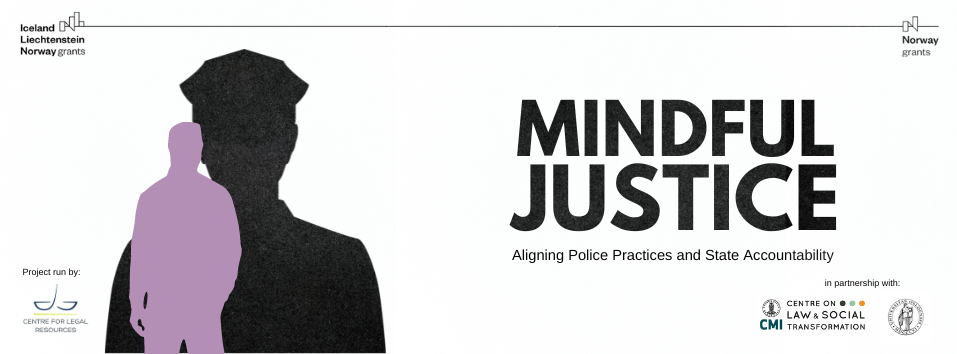
Context:
The Romanian state has been condemned by the judges of the European Court of Human Rights in Strasbourg on several occasions for violations of the fundamental rights of vulnerable groups and in particular of persons with mental disabilities. An important aspect noted was the lack of procedures and tools at the level of police detectives and mental health professionals. The only manual for training police detectives dated from 2005 and there are no references no interventions when a person with mental disabilities is involved. According to the statements of professionals in the field, they are the first to be called when incidents occur or when emergency intervention is needed, including for the hearing of witnesses, victims or defendants with mental disabilities. Equally, another problem they face is investigating and gathering relevant data when the victim, witness or perpetrator has a mental disability. For over two decades, Romanian mental health professionals and police and criminal justice professionals have complained that there is no multidisciplinary training programme and no protocol for collaboration between the police and the mental health and social services system. In fact, the Romanian government has submitted a Memorandum to the Council of Europe adopted by government decision, in which it has undertaken to remedy this issue within the next year.
For the next five years, with the new Memorandum on Mental Health (May 2024) – there is a need on interdisciplinary sector and a better collaboration between the competent authorities: police / law enforcement, penitentiaries, hospitals, social services and judicial bodies. Some of the needs listed by the Romanian Government that are considered, and proposed measures are: training for police officers and other law enforcement professionals, setting up a 6 network of specialists and contact points in each county, setting up a system for disseminating cases in which a person is at risk of becoming a victim or perpetrator of abuse, ensuring continuity of interventions for persons deprived of liberty diagnosed with serious mental disorders after release from the prison system.
Objectives:
1. To research and document existing legal and forensic practices/research on criminal accountability and mental disorders between Romania and Norway, and produce comparative data, with the aim of producing a policy paper that can provide the basis for reform discussions and further comparative research;
2. To guide Romanian state’s authorities in developing a cooperation working procedure between law enforcement and mental health & social work system;
3. To enhance the knowledge and capacities of police detectives and mental health professionals, involved in law enforcement or providing mental health and social services to adopt a human rights approach 4 in working with persons with intellectual and/or psychosocial disabilities;
4. To enhance impact at the European level by disseminating the research, methods, tools and learning gained through the project.
Collaborators:
- LawTransform is a research centre jointly owned by the Faculties of Law and the Social Sciences at the University of Bergen (UiB), and the Chr. Michelsen Institute (CMI). The centre is administratively based at the UiB Department of Government. Through collaborative, interdisciplinary research projects LawTransform researchers explore the social function of law and legal institutions, and how legal strategies are used as political tools – lawfare – to advance goals such as children’s- and migrants’ rights, health, sustainable development, peace and gender equality. The project also seeks to develop better approaches and methods to study the effects of courts and law.
- Norwegian Centre for Human Rights, University of Oslo is internationally recognised as a leading research institution in the field of human rights with research staff including lawyers, political scientists, social anthropologists, social geographers and philosophers. The NCHR is responsible for editing the Nordic Journal of Human Rights. NCHR’s two-year Master programme in ‘The Theory and Practice of Human Rights’ is well-established. NCHR is also involved in the teaching of human rights and international humanitarian law for law students and other students at the University of Oslo. They were one of three organisations behind the Mendez-principles (Principles on Effective Interviewing for Investigations and Information Gathering) and also served as the secretariate for developing for the first UN Manual on Investigative Interviewing for Criminal Investigation.
Activities:
- Research on existing policy and mental health & social practices in Romania and Norway
- Policy on developing and supporting a cooperation working procedure between Romanian law enforcement and mental health & social work system
- In person and online workshops: Investigative interviewing for criminal investigation persons with mental disabilities (children and adults)
- Study visits and meetings with professionals at the University of Bergen and the Universitu of Oslo in Norway
- International Spring Conference
- Advocacy campaign
